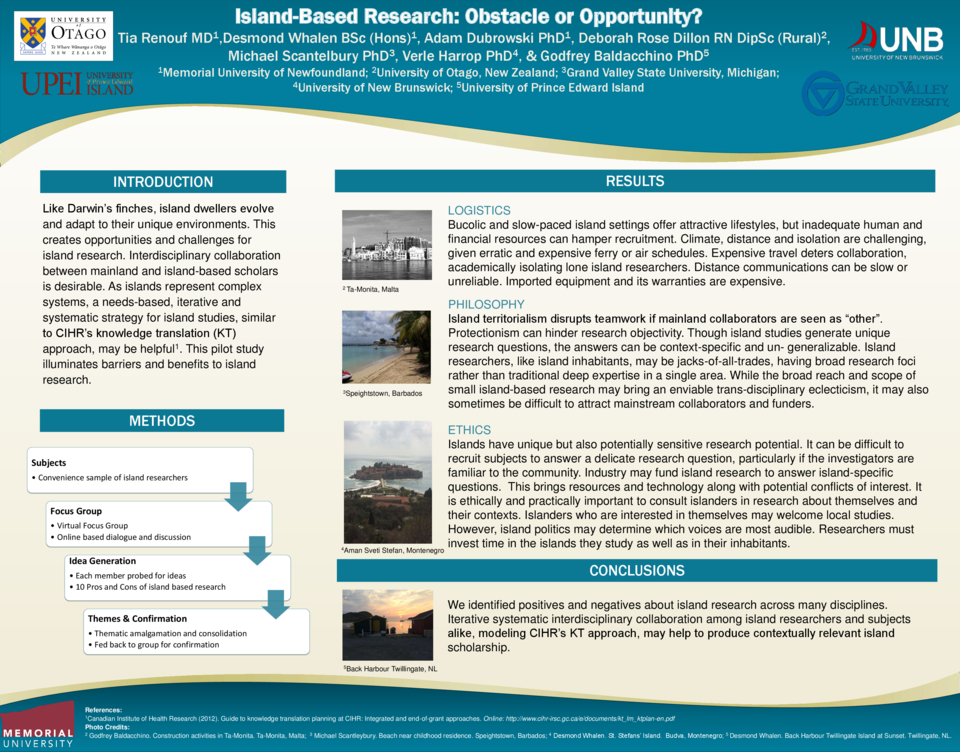Abstract
Presented at: MESC, St.John's, NL; December 1, 2015
Purpose
Like Darwin’s finches, island dwellers evolve and adapt to their unique environments. This creates opportunities and challenges for island research. Interdisciplinary collaboration between mainland and island-based scholars is desirable. As islands represent complex systems, a needs-based, iterative and systematic strategy for island studies, similar to CIHR’s knowledge translation (KT) approach, may be helpful. This pilot study illuminates barriers and benefits to island research.
Methods
We initiated a global interdisciplinary research exchange group to study barriers and facilitators to island research. Three themes emerged: logistics, philosophy and ethics.
Results
LOGISTICS: Bucolic and slow-paced island settings offer attractive lifestyles, but inadequate human and financial resources can hamper recruitment. Climate, distance and isolation are challenging, given erratic and expensive ferry or air schedules. Expensive travel deters collaboration, academically isolating lone island researchers. Distance communications can be slow or unreliable. Imported equipment and its warranties are expensive.
PHILOSOPHY: Island territorialism disrupts teamwork if mainland collaborators are seen as “other”. Protectionism can hinder research objectivity. Though island studies generate unique research questions, the answers can be context-specific and un- generalizable. Island researchers, like island inhabitants, may be jacks-of-all-trades, having broad research foci rather than traditional deep expertise in a single area. While the broad reach and scope of small island-based research may bring an enviable trans-disciplinary eclecticism, it may also sometimes be difficult to attract mainstream collaborators and funders.
ETHICS: Islands have unique but also potentially sensitive research potential. It can be difficult to recruit subjects to answer a delicate research question, particularly if the investigators are familiar to the community. Industry may fund island research to answer island-specific questions. This brings resources and technology along with potential conflicts of interest. It is ethically and practically important to consult islanders in research about themselves and their contexts. Islanders who are interested in themselves may welcome local studies. However, island politics may determine which voices are most audible. Researchers must invest time in the islands they study as well as in their inhabitants.
Conclusion
We identified positives and negatives about island research across many disciplines. Iterative systematic interdisciplinary collaboration among island researchers and subjects alike, modeling CIHR’s KT approach, may help to produce contextually relevant island scholarship.






